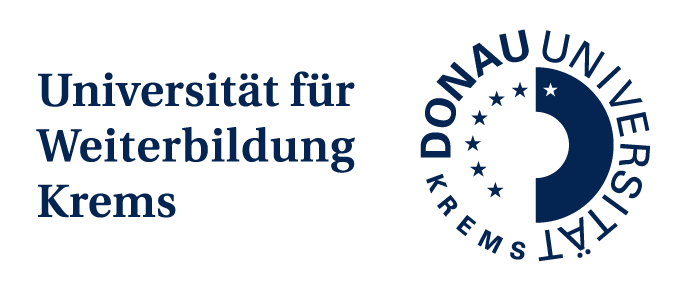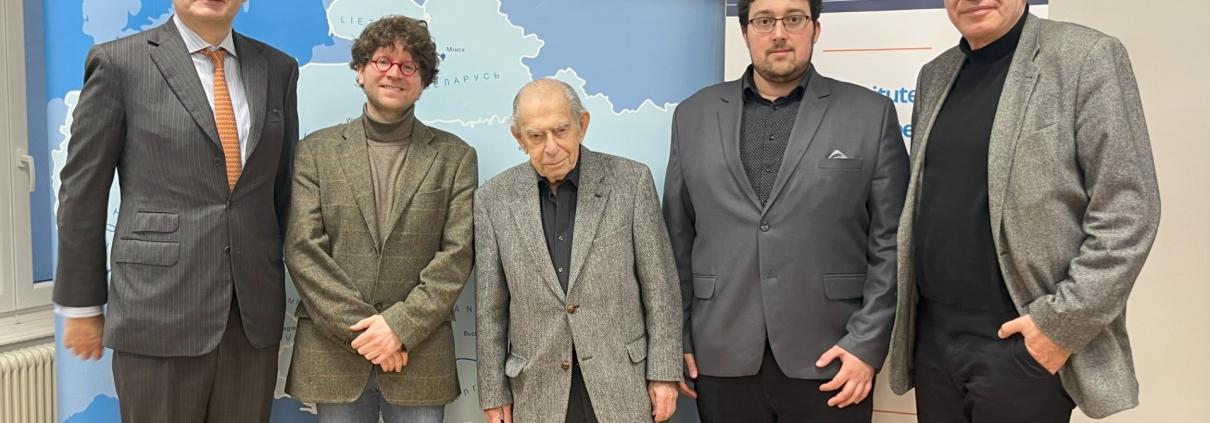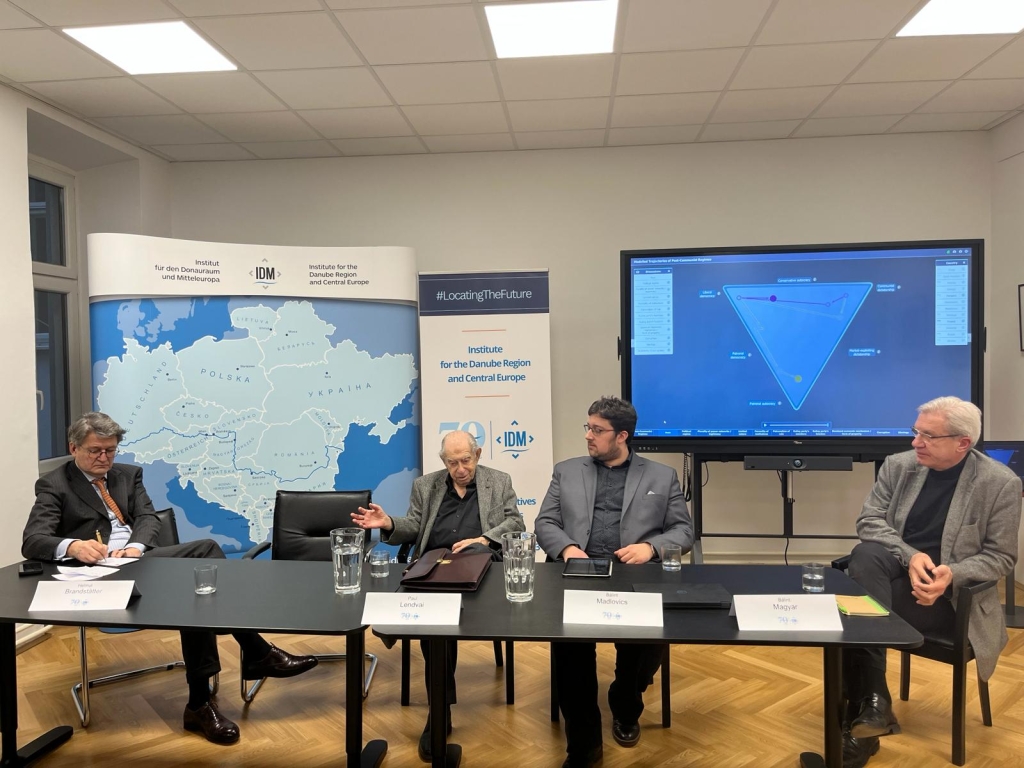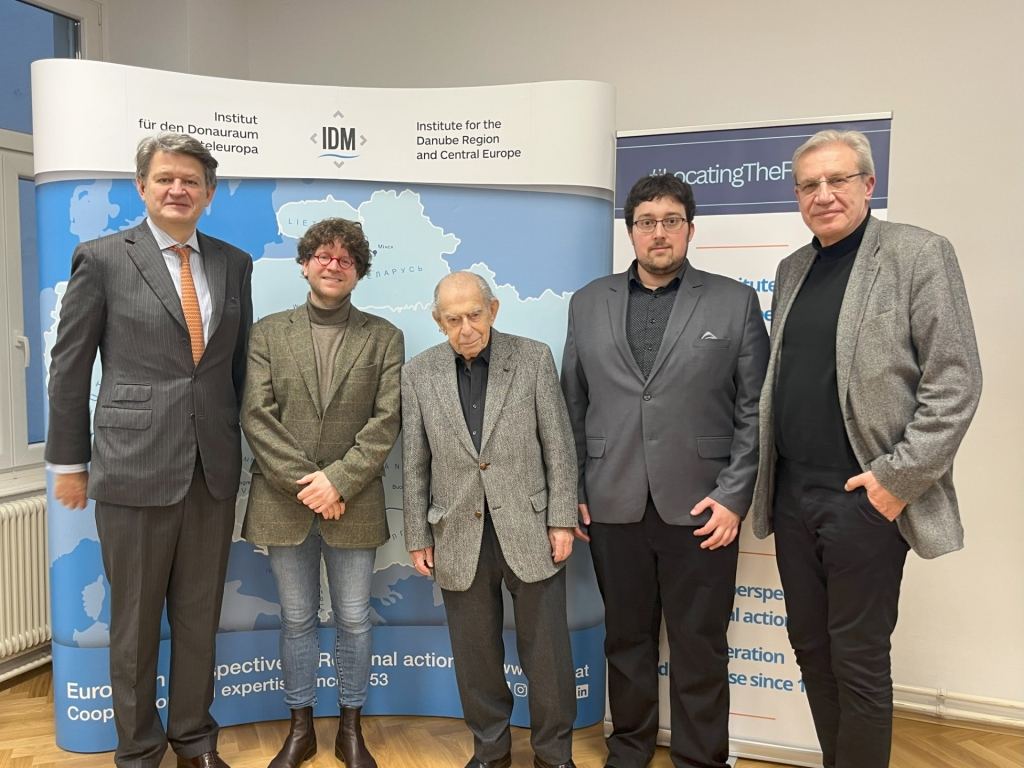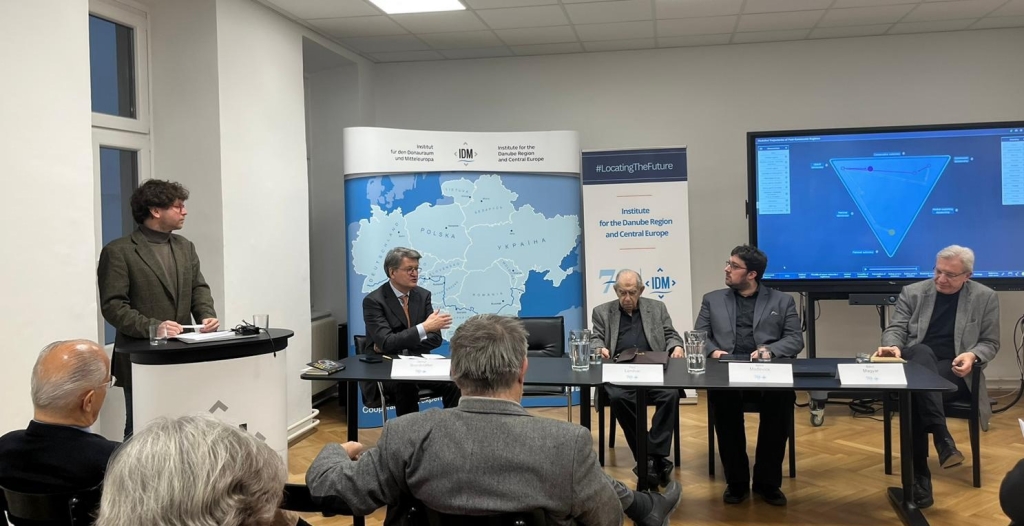Book Presentation and Discussion: “Post-Communist Regimes and Mafia States in Eastern Europe: The Case of Hungary”
February 14, 2024, IDM
On February 14, 2024, the concept of two Hungarian sociologists, Bálint Magyar and Bálint Madlovics (CEU Democracy Institute), focusing on post-communist regimes and Hungary as a “post-communist mafia state” was presented at the Institute for Danube Region and Central Europe (IDM) in Vienna.
According to the concept of the authors, post-communist regimes cannot be understood based on the prevailing ideology but the informal structures must be analysed. Depending on whether the oligarchy is plural or monopolistic, or how the state pursues criminal goals, states of Eastern Europe can be categorized. According to concept, Hungary is a “mafia state” where a mafia-like clique has seized control of the entire country. Therefore, corruption is not a crime or abnormality but rather the essence of this state. A “mafia state” is not a state where the mafia tries to infiltrate the state; rather, it is a state where the mafia itself becomes the state, where the law is set and applied for criminal purposes. In a “mafia state,” there is no competition among different oligarchs; everything is subject to a single criminal power centre. Such a system operates “feudally”: the “Lord” is at the top, and even the “oligarchs” receive their wealth from him. Clan loyalty, not ideology, holds the system together.
At the beginning of the event, Péter Techet, a research associate at the Institute for the Danube Region and Central Europe (IDM), briefly introduced the concept of the “post-communist mafia state.” Techet mentioned a recent scandal in Hungary: After the President of the State, Katalin Novák, had to resign due to pardoning an accomplice in a child abuse case, a Fidesz insider spoke out unusually harshly and openly against the regime. The former Fidesz insider also resigned from all his positions and stated that the country had become a “family business.” Techet emphasized that the former Fidesz insider addressed the phenomenon that the two sociologists, Bálint Magyar and Bálint Madlovics, analyse and describe in their concept of a “post-communist mafia state.”
Paul Lendvai, an expert of Eastern Europe and columnist for the daily newspaper “Der Standard,” hold the book’s laudation. He argued that the European Union and Western European politicians still do not understand Eastern Europe and therefore have not found a way to deal with the post-communist regimes there. Lendvai stressed that Hungary is not an isolated case because other autocrats in the region also seek to follow the Hungarian model. He recommended that everyone should know the concept of Magyar and Madlovics because it provides a very realistic description of Eastern European conditions.
After Lendvai’s introduction, the two authors, Magyar and Madlovics, gave a lecture on their concept. They explained how a mafia state functions, how ideologies and the legal system are used, and how such a state should be treated as a criminal organization. They also discussed the significant differences between Hungary, Ukraine, and Poland: in Poland, the national conservatives did not alter the state in criminal interest; in Ukraine, a feudal power centre did not emerge. In contrast, Hungary is not an oligarchic democracy because the oligarchs themselves depend on a single power centre. Magyar and Madlovics emphasized that the ideologies Viktor Orbán uses in his rhetoric serve only to hide the true criminal purpose of the Hungarian “mafia state.” Therefore, it is misleading to see Orbán as a Christian conservative or as a right-wing nationalist; his politics aim not at realizing an ideology but at securing familial power.
Following the lecture, a panel discussion took place, also with Helmut Brandstätter, Member of the National Council and lead candidate of the Neos for the European Parliament elections. Unfortunately, Ewa Dziedzic-Ernst, Member of the National Council for the Greens, had to cancel her participation due to another appointment. During the discussion, Brandstätter emphasized that the European Union should take a more consistent and decisive stance against illiberal tendencies. He argued that the European Union had financed such systems as in Hungary for too long. Magyar advocated for a different approach by the EU toward Hungary, suggesting that European integration should deepen without Hungary’s involvement. Lendvai also stressed that the European Union still does not understand that Hungary used EU funding to expand its “mafia state.” The discussion also addressed the negative role of German capital in Hungary in building the Orbán system: Madlovics explained how Orbán economically supports and politically needs German companies in Hungary. In return, German companies accept the rules of a “mafia state.” However, Brandstätter and Lendvai also pointed out that Orbán not only built a “mafia state” in Hungary but also supports anti-European forces in the EU, making it essential for the EU to halt developments in Hungary with legal and financial means.
